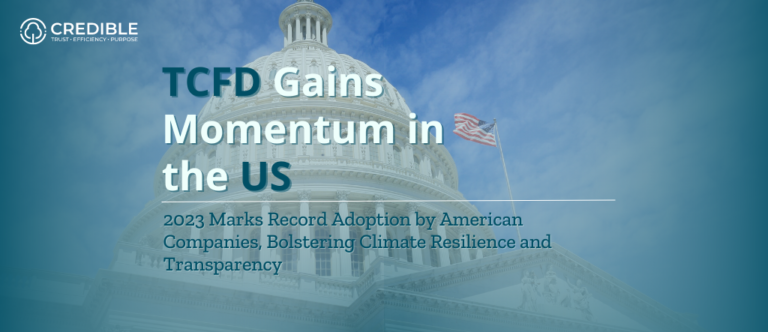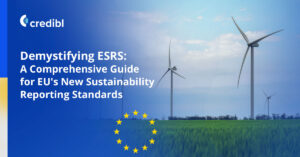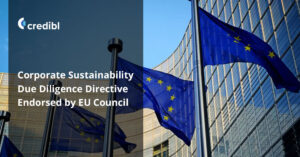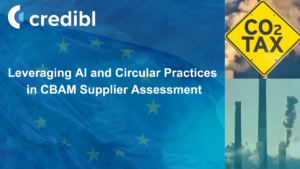TCFD Gaining Momentum in the US
Climate change is no longer an abstract concept looming in the distant future; it is a tangible reality affecting our world today. It is essential to raise awareness about the critical role of the Task Force on Climate-related Financial Disclosures (TCFD) in promoting transparency and accountability in the corporate world. In this blog post, we will explore the highlights of recent TCFD updates and understand how it is driving change in ways companies approach climate-related risks and opportunities.
TCFD: A Brief Overview
Established by the Financial Stability Board in 2015, the TCFD aims to develop a set of voluntary, consistent disclosure recommendations for companies to provide clear and transparent information about climate-related financial risks and opportunities. The TCFD framework consists of four core elements: governance, strategy, risk management, and metrics & targets. By adopting the TCFD recommendations, businesses can enhance their risk management processes, build resilience, and attract investment by demonstrating their commitment to a sustainable future.
TCFD’s Rise in the US: 2023 So Far
-
Growing Adoption by Major Companies and Financial Institutions
In 2023, the TCFD has seen a significant surge in adoption by major US companies and financial institutions. This trend highlights a growing recognition of the importance of climate-related financial disclosures in fostering informed decision-making and driving long-term value creation. Notable examples include leading tech giants, energy companies, and major banks embracing and integrating the TCFD framework into their reporting practices.
-
SEC Proposes New Rules for Climate-Related Disclosures
The Securities and Exchange Commission (SEC) has taken important steps to enhance climate-related disclosures in the US by proposing new rules that align with TCFD recommendations. These rules would require companies to provide more detailed information on their greenhouse gas (GHG) emissions, climate-related risks, and their strategies to manage these risks. If implemented, these rules will promote corporate accountability and ensure that investors have access to consistent, comparable, and decision-useful information.
-
Increased Collaboration Between TCFD and Sustainability Reporting Standards
In response to the growing demand for standardized ESG reporting, the TCFD has been working closely with organizations such as the Sustainability Accounting Standards Board (SASB) and the Global Reporting Initiative (GRI) to harmonize their frameworks. This collaboration is crucial to simplifying the reporting landscape and encouraging more companies to adopt comprehensive and consistent climate-related disclosures.
-
Business-led Initiatives Promoting TCFD Adoption
Several business-led initiatives have emerged to promote TCFD adoption in the US with more companies joining forces to share best practices, overcome implementation challenges, and support peers in their journey towards more transparent climate-related disclosures. These collaborations are vital in building momentum, fostering a culture of transparency, and driving industry-wide change.
The TCFD has made significant strides in the US so far, with growing adoption, regulatory support, and collaborative efforts all contributing to a more transparent and climate-conscious corporate landscape.
The Credible Data Reporting platform provides assistance in addressing the final disclosures and TCFD reporting and other framework options like GRI, SASB, etc. It’s an all-in-one platform designed to measure, manage, and report your ESG data, providing a comprehensive and user-friendly ESG reporting experience. Click here to book your 30-minute demo today to unlock the full potential of this platform.







